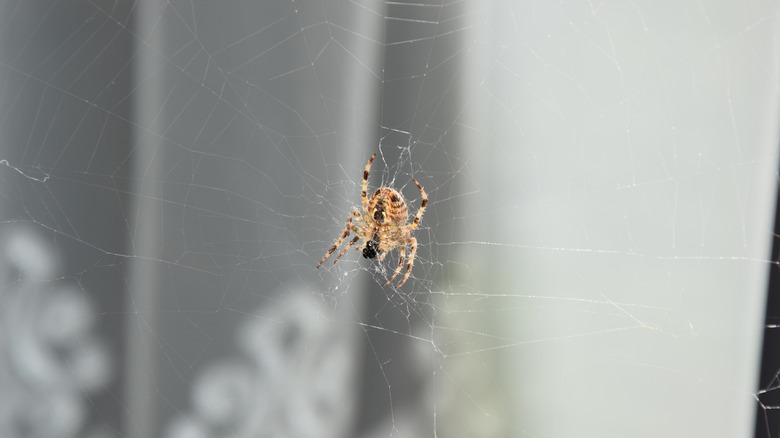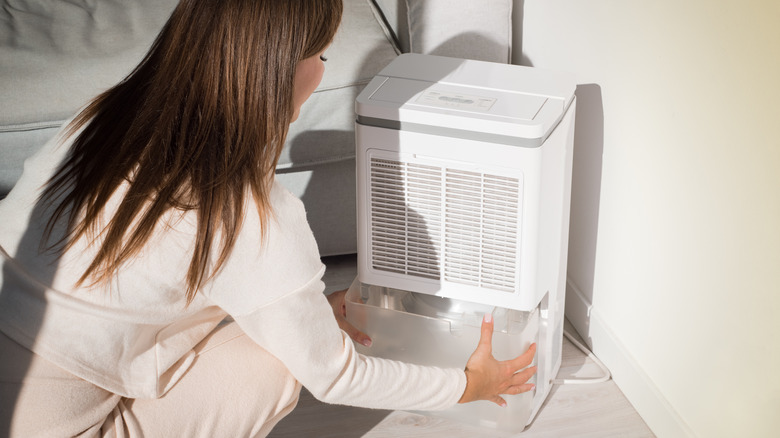The Tiny Mistake You Didn't Know Was Attracting Spiders To Your Home
Life's messy. Nobody's perfect. Occasionally, you forget to close the shower curtain all the way, wet towels get left on the bathroom floor, or pasta water boils over, soaking your stovetop. All of these are minor blunders that result in wet messes, but with easy clean ups. No harm, no foul, right? Not if you don't like sharing your home with eight-legged creepy crawlers. Turns out the tiny mistake you didn't know was attracting spiders to your home is too much humidity.
You may be aware that regular chores keep spiders away from your home, but did you know that overwatering plants can negate all those hours spent wiping up grime? For spiders, it's all about survival. As much as the pesky insects thrive in debris-filled areas of your home, they are equally attracted to humid spots as well. Bottom line: moisture is a spider magnet. As living organisms, spiders need water to endure. Consequently, they seek out damp places in your home to access life-sustaining hydration. Don't be surprised to discover high concentrations of spiders congregating under your sinks, in your basement and bathrooms, and near indoor plants. The multi-limbed predators are not only drawn to these moist spots to quench their thirst, but also to satisfy their hunger. Since many of the bugs that spiders prey on are also attracted to humidity, soggy spots in your house become the ideal hunting ground for spiders searching for a tasty meal.
How to decrease humidity in your home
Too much humidity in your home opens the doors to a spider infestation, while too little humidity can breed colds and other respiratory illnesses. It's all about finding the ideal humidity level — for example, in a finished basement it should be between 30% and 50%. To achieve this consistency, install dehumidifiers in sultry areas of your home — like your basement. Doing so will help remove some of the moisture in the air and make the area less inviting to spiders.
Alternatively, you can simply make a conscious effort to better manage the amount of dampness in your home by modifying daily home activities. Little actions, such as reducing the length of time you spend taking hot, steamy showers or not allowing wet clothes to sit out for long periods of time, can go a long way to decrease spider populations. Moreover, consider consolidating the number of loads run in moisture-generating appliances, such as washing machines and dishwashers. Another easy move is to open windows to allow fresh air to circulate in humid rooms like the kitchen and bathroom. Or, at the very least, turn on exhaust fans to counteract dampness created by cooking and bathing.
Finally, complete a quick home tour to identify any leaks under sinks or around tubs. Additionally, check for water seepage in the basement and make repairs accordingly. You can even wrap sweating pipes with foam insulation to reduce the amount of moisture being released into the air.

